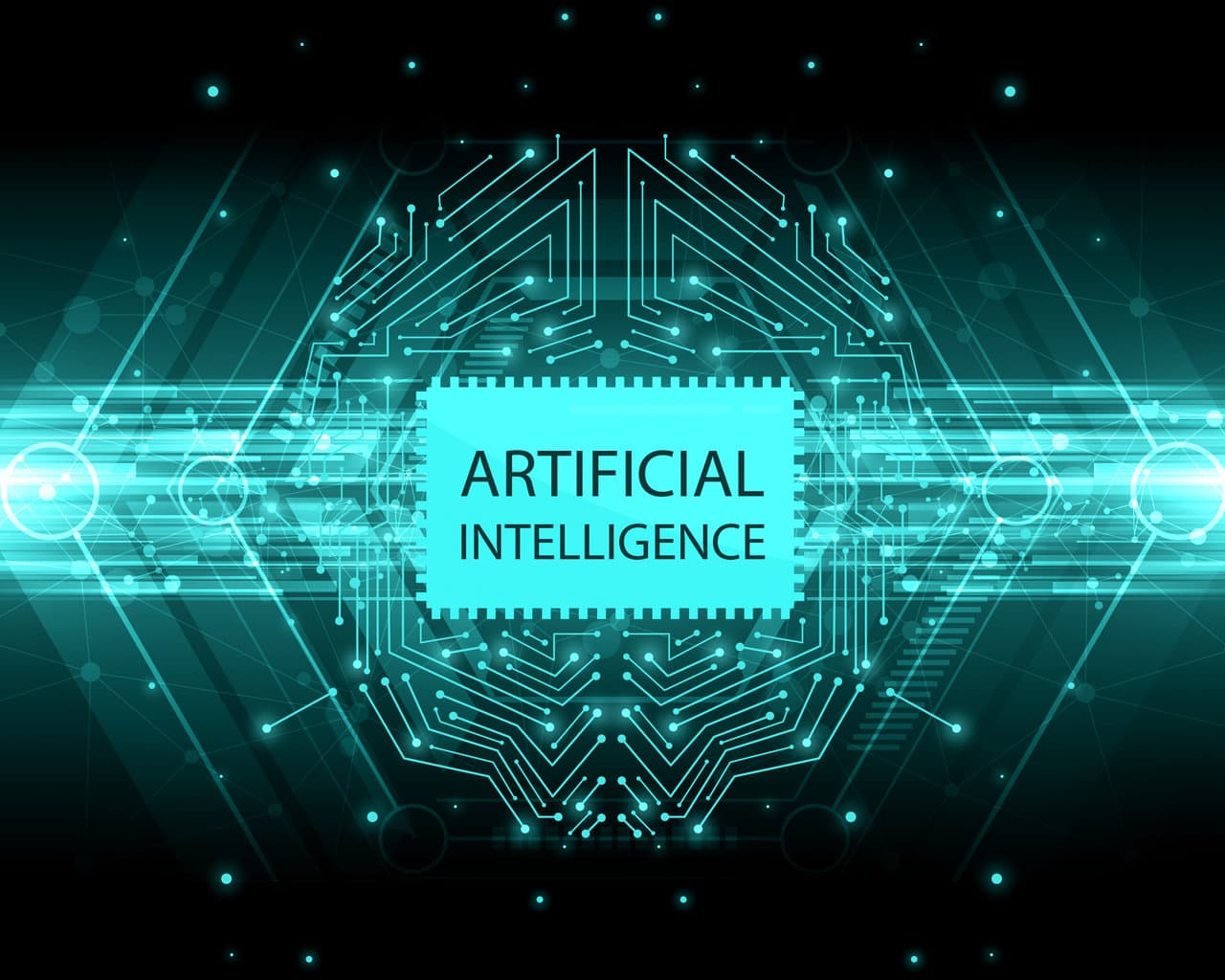As of 2025, Artificial Intelligence (AI) is fully embedded in our daily lives, influencing how we work, communicate, learn, and live.
Its rapid evolution from obscure research to everyday application is a testament to technological advancement and human adaptability.
Let’s begin.
Key Takeaways
- AI now touches nearly every aspect of daily life, from smart home devices and personalized education to healthcare diagnostics, gaming, finance, and agriculture.
- Advancements in machine learning, deep learning, and multimodal AI models (like GPT-4o and Gemini 1.5 Pro) are pushing AI closer to general intelligence with more human-like versatility.
- AI enhances productivity by automating repetitive tasks, personalizing user experiences, improving decision-making, and enabling real-time insights across industries.
- Ethical challenges such as data privacy, algorithmic bias, and job displacement underscore the need for responsible AI development and transparent implementation.
- Undetectable AI tools help maintain authenticity by humanizing AI-generated content, making it readable, trustworthy, and suitable for both personal and professional communication.
What is Artificial Intelligence?
At its core, Artificial Intelligence refers to the simulation of human intelligence by machines and computer systems.
These systems can reason, learn, perceive, solve problems, and understand or generate language — allowing them to carry out tasks that typically require human cognition.
AI is generally divided into two types:


Never Worry About AI Detecting Your Texts Again. Undetectable AI Can Help You:
- Make your AI assisted writing appear human-like.
- Bypass all major AI detection tools with just one click.
- Use AI safely and confidently in school and work.
- Narrow AI, designed for specific tasks like facial recognition, navigation, or recommendation engines.
- General AI, which refers to systems capable of learning and performing a wide range of tasks, often requiring human-like reasoning and adaptability.
As of 2025, frontier models such as OpenAI’s GPT-4o and Google’s Gemini 1.5 Pro are beginning to blur the lines between these categories — demonstrating more generalized capabilities across text, image, audio, and coding tasks, and sparking broader conversations about the emergence of true general intelligence.
These advancements signal a shift in how we define and interact with AI — moving from single-purpose tools to adaptive systems with broader utility across industries.
How Does Artificial Intelligence Work?
AI operates on the foundation of both machine and deep learning. Machine learning is a category within the AI universe where machines and computer systems are trained to learn from extracted data to identify patterns and then make accurate decisions and suggestions with practically zero human intervention.
Deep learning, which is a subset of machine learning, involves more complex neural networks coated in various layers of processing units.
This process can draw deep and meaningful insights from data that is similar to how a human brain functions and processes information.
What’s exciting about these technologies is that the more data these computers and systems are exposed to and able to extract, the more they learn and the more accurate they become, making them even more and more powerful.
It’s this ability that creates the Hollywood-style fear among the masses of AI eventually taking over and killing off humanity because of its power to continuously learn and gain power.
New architectures such as Mixture-of-Experts models and dedicated AI hardware (e.g., NVIDIA H200) have significantly increased both learning speed and accuracy.
The Daily Impact of AI
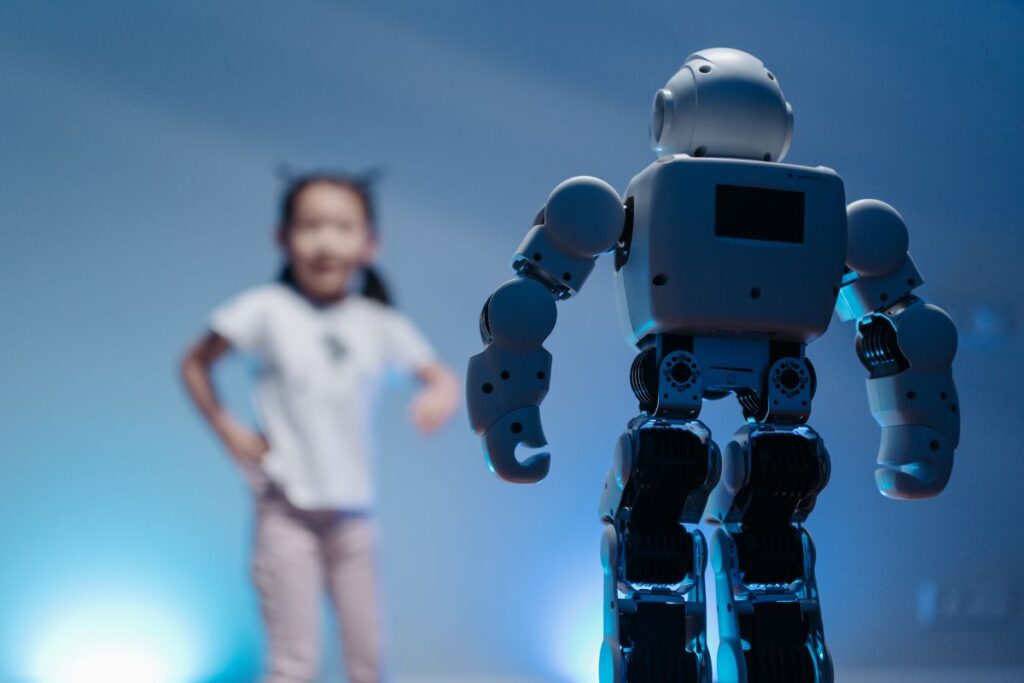
AI’s influence on our daily lives is profound in many ways that most people don’t yet truly grasp.
AI touches on countless sectors of business and our daily lives and often goes completely unnoticed by those who don’t have a deep understanding or awareness of the technology and how it is seamlessly implemented.
Let’s dive deeper into some of the areas where AI is making a major positive impact in our day to day:
Education
AI is accomplishing tremendous feats in the educational world by enabling highly personalized learning paths for students of all ages using tools like Khanmigo and ScribeSense, which personalize learning at scale.
In 2025, AI tools and platforms like Khanmigo, ScribeSense, and AI-integrated Learning Management Systems (LMS) are being widely adopted to deliver tailored learning experiences at scale.
At the same time, AI also provides educators and administrators the ability to automate tedious and manual tasks like grading, freeing up more time for classroom engagement with students and implementing activities that are more custom-fitted for each student based on the data that’s available from the technology being utilized.
AI-driven tutoring applications and adaptive learning platforms can provide students with custom learning experiences.
This significantly improves the learning experience as a whole and puts students on a fast track to academic success.
Agriculture
AI technologies are revolutionizing traditional farming and agricultural processes and practices, making yields larger while reducing waste.
AI tools such as autonomous tractors from John Deere, climate-sensing drones, and AI-powered irrigation systems are now redefining precision farming in 2025.
Precision farming, a process that uses AI to make farming far more controlled, uses predictive analytics to improve crop management and production.
AI helps create a more sustainable and efficient agricultural sector, which increases profit margins for a sector that has seen a dramatic drop in the workforce and many small family farms die off while trying to compete with multinational corporations.
Astronomy
AI’s part in astronomy is incredibly important in processing the ridiculous amounts of data generated by observatories and telescopic scanning of the galaxies.
In 2025, AI models are helping astronomers analyze data from the Rubin Observatory and James Webb Space Telescope at unprecedented speed and accuracy.
Utilizing AI in astronomy provided a much-needed helping hand in deep space exploration so we can better understand ideas and hypotheses of the great beyond, something that would be essentially impossible with human observation on its own.
Data Security
AI’s ability to monitor network traffic, flag mischievous behavior, alert those in charge to possible attacks, and detect anomalies plays a pivotal role in both identifying and fighting back against cyber threats and hackers.
This proactive approach by utilizing AI in data security protocols keeps data far more secure and drastically decreases the chances of someone breaching a private network and stealing confidential information that can be used in malicious ways or held for ransom.
Also, Cloud-Native Application Protection Platform (CNAPP) uses AI to improve security in cloud environments by offering visibility and control over AI services, identifying misconfigurations, and protecting sensitive data.
Finance
The finance sector benefits from AI in many ways that are extremely important for both security reasons and ways to yield higher profits for businesses and investors.
In 2025, generative AI models are being used to automate financial analysis, generate investment recommendations, and even power ChatGPT plugins tailored to financial forecasting.
AI assists in algorithmic trading, automated stock trading, and fraud detection systems for improved security that protects against unauthorized financial transactions or hackers seeking to game the system to make a quick buck.
Gaming
In the gaming space, AI is transforming the industry by creating highly immersive and interactive experiences that aren’t just engaging in ways video games normally are but experiences that are so realistic that gamers feel as if they are a part of the world in which they are playing.
New innovations such as NVIDIA ACE for Games and AI-powered NPCs in Unreal Engine 5 offer deeply personalized gaming narratives and character interactions.
AI is enhancing the intricacy and engagement of gaming by assisting in the development of highly sophisticated gaming environments, creating characters and opponents that are highly personalized and customized to each player’s gaming strategy.
Also, increasing the engagement level in ways that keep gamers playing far more time and with people from other parts of the world.
Personal Assistants
Personal AI assistants like Siri and Alexa are becoming more sophisticated by the day, understanding and predicting our immediate needs and desires.
They have evolved to become more conversational and personalized, making our interactions with technology more natural and humanized.
Social Media
AI algorithms used by social media platforms are essential for content curation to make sure that users see posts that are most relevant to their interests and that inappropriate content is immediately flagged and banned before popping up on someone’s feed.
Customer Service
AI is revolutionizing customer service automation by utilizing highly sophisticated and automated chatbots and virtual assistants.
These bots are able to have complex conversations with clients and can provide 24/7 support, answering queries and offering assistance with a level of consistency and patience that’s making the need for human customer service essentially obsolete.
Healthcare
AI’s impact in the healthcare sector can literally be life-changing. AI can aid in early diagnosis and disease detection and also help create personalized treatment plans.
This enhances both patient care and efficiency at the administrative level of hospitals and clinics. AI algorithms can also analyze medical data much faster and more accurately than humans, leading to better patient outcomes and recovery rates.
E-commerce
In the e-commerce world, AI analyzes customer behavior while enabling brands to provide personalized shopping experiences for their visitors.
AI also makes inventory management and logistics far more organized and efficient, optimizing the supply chain while reducing operational costs and increasing profit margins.
Autonomous Vehicles
The development of autonomous vehicles is one of the most innovative developments in the AI world.
Self-driving cars will eventually change local and regional transport as a whole by creating a far more efficient and safer system.
But this will take a lot of time as there are still many challenges ahead with both ethical concerns and pushback from traditional transport industries.
Smart Home Devices
AI can make our homes smarter, more efficient, and more dynamic places to live, relax, and be entertained.
AI can quickly learn our preferences to automate things like controlling lights and temperature, simple things that enhance our day-to-day by cutting out mini tasks we don’t realize add up and occupy our time.
Travel and Transport
AI is used to optimize routes, predict delays, and improve overall efficiency in the travel world.
AI is not only able to improve the travel experience and make it more efficient but it can reduce environmental impacts by implementing strategies and logistical coordination to improve the management of different resources.
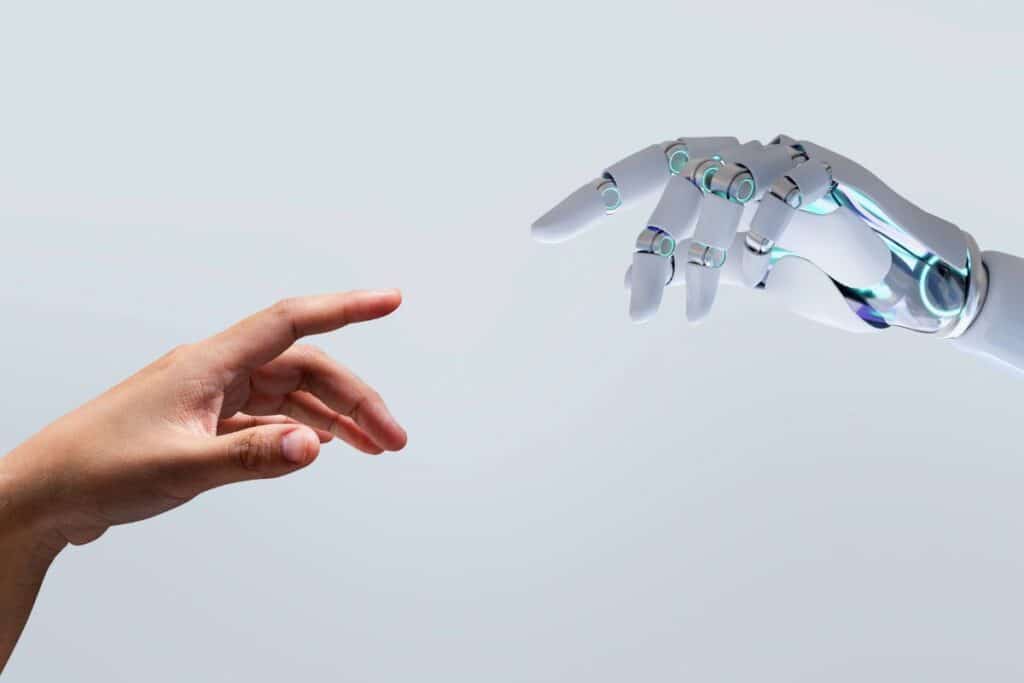
The Future of AI
The future of AI is both exciting and uncertain. Some people might see AI as a pervasive presence in our lives.
There are many possible reasons for this depending on who the person is, what generation they are from or where they grew up, or how much technology they are used to having in their daily lives already.
But with that said, AI’s ability to accurately analyze and process immense amounts of data at a rate that could never be matched by humans.
Because of this, AI has become an invaluable tool across every sector by being able to solve complex problems while enhancing productivity and efficiency.
For trade professionals, including electricians, AI tools for electricians can streamline daily operations, improve diagnostics, and optimize business workflows.
As the tech behind AI continues to rapidly advance, AI will become far more personalized and intuitive.
This will make it possible for even more complex tasks and solutions to become part of our daily lives at home and the workplace.
However, this progress will imminently bring with it loads of ethical and societal challenges and changes that can both present challenges and battles that can stand in the way of AI reaching its full potential.
Some of these challenges include privacy concerns, the very real possibility of job displacement, and the need for regulating AI development and implementation where ethical questions or concerns are in play.
Undetectable AI and Human-Centered Tools
As AI becomes increasingly embedded in everyday life, maintaining natural and trustworthy communication is more important than ever. Undetectable AI provides a suite of tools that help people produce clear, authentic, and AI-assisted content in both personal and professional settings.
Undetectable AI offers:
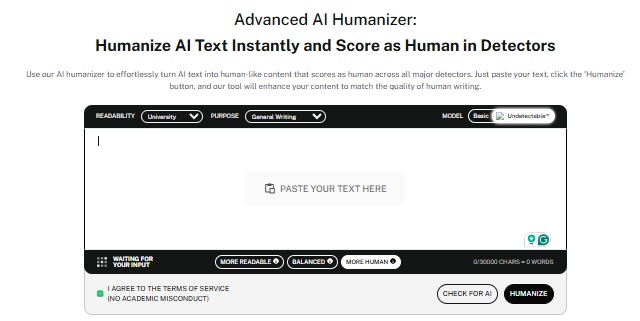
AI Humanizer – Transforms robotic-sounding text into natural, human-like language suitable for emails, academic work, and more.
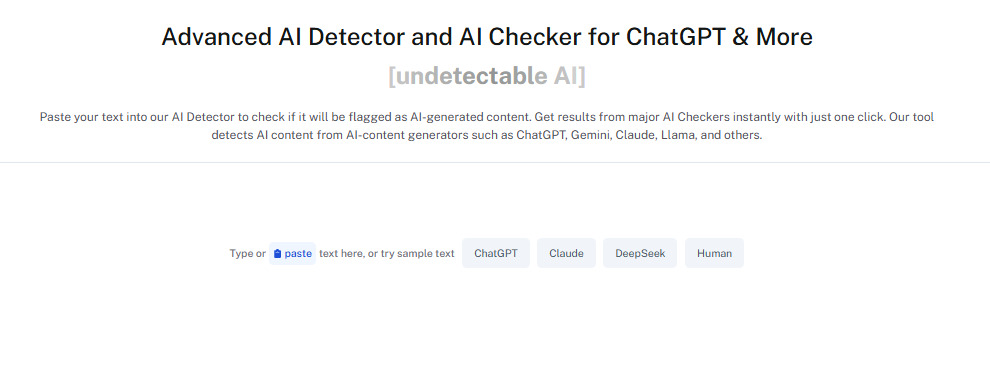
AI Detector – Scans your writing to identify if it may be flagged as AI-generated, helping you maintain originality and trust.

Ask AI – A smart writing assistant for everyday tasks, brainstorming, or content support tailored to your tone and intent.
These tools empower everyone — from students and professionals to casual users — to harness AI’s power while keeping their voice genuine and relatable.

Business Name Generator – Building or launching your own consumer-facing AI solution? Our AI Business Name Generator helps you instantly create distinctive, memorable names that connect with users and reflect your innovation.
Refine AI-written text for clarity and trust—use the AI Detector and Humanizer below.
Conclusion
AI’s integration into nearly every aspect of our lives shows a major shift in a short period regarding our coexistence with this relatively new technology.
AI is not just a tool for innovation. It has become a partner in our daily activities, enhancing our capabilities as professionals and people by offering fast and easy solutions to complex problems and daily tasks.
As AI continues to evolve, its potential to transform our world has no bounds if implemented the right way while taking into consideration the many ethical and moral challenges that are faced by its inclusion in almost everything we do.
Join the growing community of educators and students who trust Undetectable AI.
